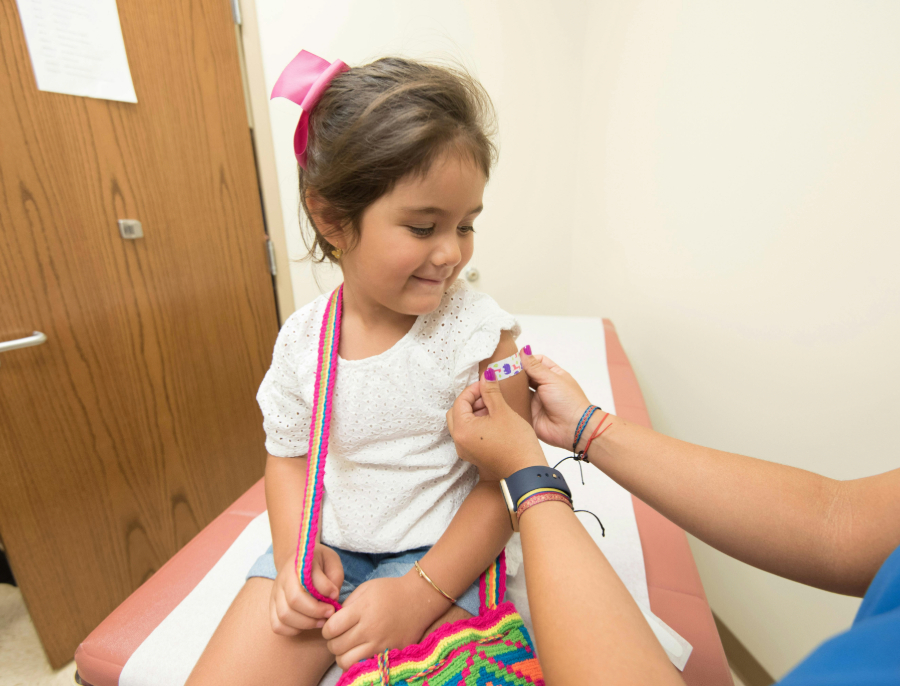Mayan Lopez Was Diagnosed With PCOS—and She Took Control of Her Health by Doing This

On May 18, Dear Media hosted its Los Angeles Edit live event—an immersive wellness experience that drew attendees despite the morning’s light rainfall (known as May gray for Angelenos). The venue was a hub for all the wellness advice your heart could desire, and in the afternoon attendees gathered eagerly to hear from beloved Dear Media hosts, including Dr. Thais Aliabadi, aka Dr. A, and Mary Alice Haney from SHE MD. Their panel, “Own Your Wellness,” presented by Myriad, welcomed a special guest: actress Mayan Lopez.
You might know her as George Lopez’s daughter or the star of Lopez vs Lopez. But a lesser-known part of her story is her journey with polycystic ovary syndrome (PCOS). During the panel, Lopez shared her diagnosis journey, crediting Dr. A with finally uncovering the condition that had affected her for years. Her powerful story reveals how an accurate diagnosis became the turning point that allowed her to claim control of her health.
Mayan Lopez’s journey with PCOS
Doctors diagnosed Lopez with PCOS at 23 years old—a revelation that came decades late. Her struggle began with her first period at age 11, followed by years of painful periods, unexplained weight gain, and excessive facial hair growth that started in childhood. Her mom, she explained on the panel, even put her on Weight Watchers when she was 10 years old.
Lopez explains the frustration of years of undiagnosed PCOS: “It was decades of not knowing anything about my body. I didn’t know what PCOS was, and it got to a point in college where I gained 75 pounds in a month. I had a personal trainer, and I lived above a SoulCycle.”
Throughout her life, she struggled with bulimia and eating disorders—all symptoms related to her undiagnosed PCOS. The illness affected not only her health, but also her intimate life. Lopez shared an experience of intimacy with an ex where she was told she “tasted bad.” She also remembers struggling to get lubricated during sex because she had too much testosterone.
Because of her weight struggles, Lopez even contemplated having gastric sleeve surgery. Fortunately, before taking that step, Dr. A diagnosed her with PCOS: “I couldn’t lose the weight. My body wasn’t responding to sexual stimulation. I was a shell of a person when I came to Dr. Aliabadi, [and] I’ll never forget going into her office. I felt so seen for the first time, and I finally got answers. She diagnosed me in minutes. I left taking the biggest breath,” Lopez says.
How PCOS affects women
PCOS affects five to 15 percent of women, and 10 percent of women have endometriosis. However, a majority of women don’t know they have either disease. They suffer from painful periods, hair loss, depression, and anxiety. It’s also one of the top causes of infertility.
Lopez didn’t know much about PCOS before her diagnosis. She says, “I’m so incredibly grateful to now be able to talk about it with women. If I have a platform, I want to be able to share my experience.”
Dr. Aliabadi says there is so much power in celebrities like Lopez sharing her story: “If someone as privileged as Mayan can’t get the help they need, no one can. That’s why I’m so big on being an advocate. It’s not just a fertility issue or a hormone issue. It’s a brain hormone pathway that doesn’t function properly”
What are the criteria for PCOS?
PCOS affects so many aspects of a woman’s health. Women with PCOS struggle to process carbohydrates, meaning their bodies cannot properly process sugar. Instead, it stores sugar and turns it into fat. This process triggers higher insulin levels, which in turn causes the ovaries to produce more testosterone. The resulting insulin resistance creates a cascade of systemic problems throughout the body.
“This is a vicious cycle. It affects your gut, your brain, and your genetics. It’s a multifactorial disease. That’s why it’s so difficult to treat these passions. One birth control won’t treat an irregular period. You need a diagnosis to address the inflammation in the gut and all the issues,” Dr. Aliabadi says.
There are three standard criteria that doctors use to diagnose PCOS. You need two out of three symptoms for a positive diagnosis:
- Painful, irregular menstrual cycles
- Polycystic ovaries (distinctive shape on ultrasound)
- Elevated levels of testosterone (symptoms include hair loss and acne)
How to proactively take action in your health journey
SHE MD’s goal is to equip women with the information they need to confidently advocate for themselves at the doctor’s office and request the correct tests. “We want to arm you to be your own health and wellness journey,” Mary Alice Haney says.
Properly managing PCOS starts with a diagnosis. To get a hold of your health, Dr. Aliabadi encourages women to ask questions and to seek out health proactively. Here’s what you need to ask for when you go to the doctor:
- Ask for a blood test called AMH or an Anti-Mullerian Hormone test. This test determines your egg count.
- Ask your doctor for a laparoscopy to test for endometriosis.
- Ask your doctor for a clinical evaluation to check for PCOS and to have a pelvic ultrasound.
- Ask your doctor for a genetic test. It’s essential to know your family history of breast cancer. (The MyRisk test is an example; it’s covered by insurance. If it’s not, it will be about $240.)
“Too often, women are not properly diagnosed with PCOS. Doctors are not diagnosing the hormonal, gut, and inflammation issues. If you know someone with acne, who is a little overweight or has an eating disorder….. make sure they’re not being dismissed for PCOS.” Dr. Aliabadi says.




















Leave a Reply